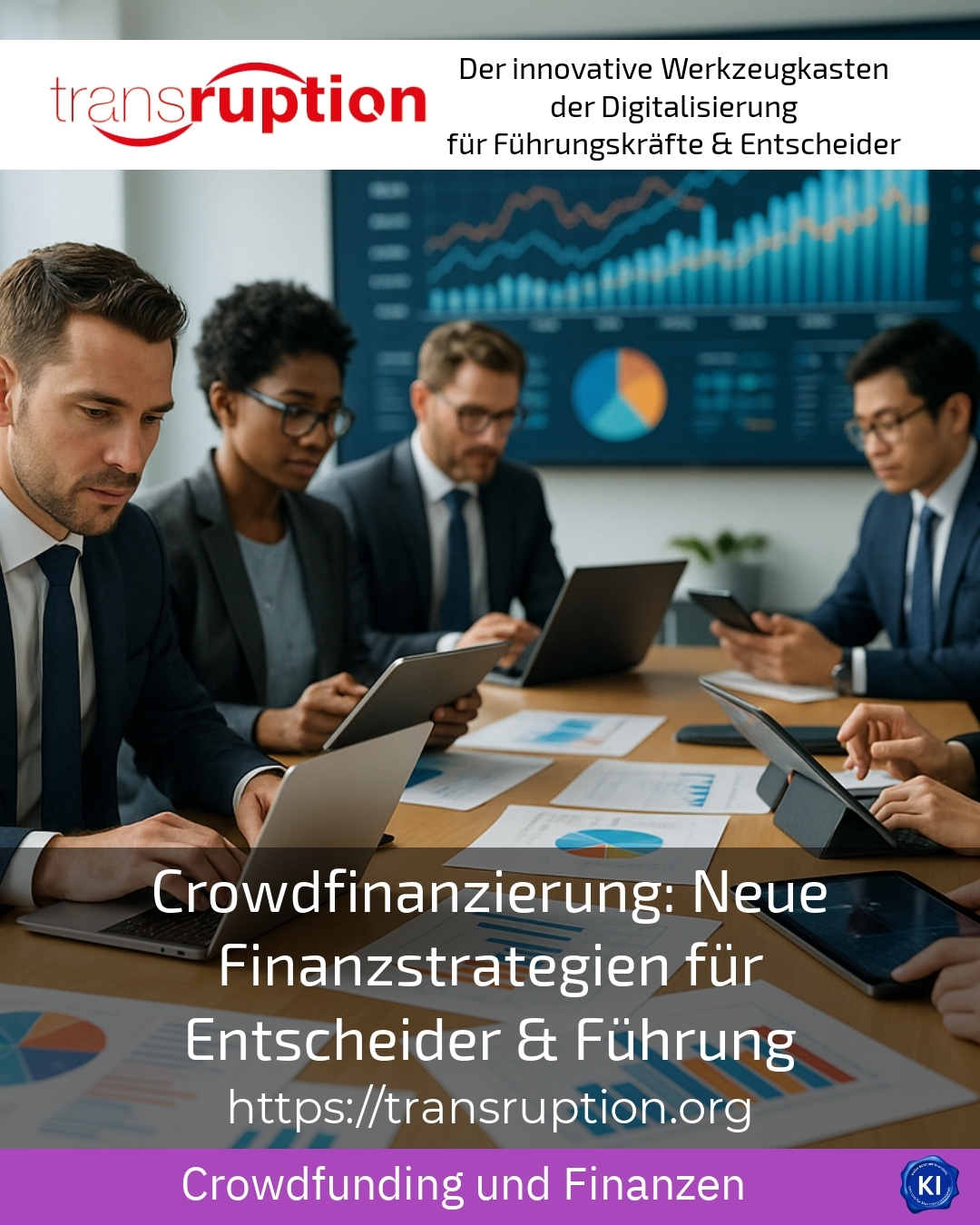Crowdfunding is becoming increasingly important as a modern financial strategy for decision-makers and managers. More and more companies, whether start-ups, SMEs or established businesses, are using this flexible form of capital procurement to realise innovative projects and build valuable customer loyalty at the same time. Crowdfunding offers an attractive alternative to traditional financing methods and supports decision-makers in generating financial resources independently of banks or venture capital.
Crowdfunding as the basis for sustainable financing concepts
Crowdfunding enables companies to raise capital through the support of many individual investors. Projects reach a wide audience via online platforms without the need for extensive collateral or traditional credit checks. As a result, company managers retain full control over their projects and do not have to give up shares, as is usual with investors or venture capital.
For example, a craft business was able to finance the purchase of new machines with the help of the crowd and thus expand its production without having to pay high interest rates on loans. Similarly, a start-up in the field of sustainable technology not only enabled the development of an innovative product through crowdfunding, but also received important feedback from future customers during the campaign. A young entrepreneur in the catering sector also successfully opened a new branch thanks to a crowdfunding campaign and built up a loyal community.
Crowdfunding is therefore a financing instrument that not only mobilises capital, but also provides valuable impetus for product design and marketing decisions.
The role of crowdfunding in project development
Many managers and entrepreneurs use crowdfunding to test their ideas and obtain feedback from the market at an early stage. The direct involvement of supporters is a great advantage, especially in the development phase. Feedback from the crowd can help to improve products or adapt offers to the needs of the target group.
A regional book publisher relied on crowdfunding to publish a new manuscript by a promising author. The support from the crowd not only made the financing possible, but also helped to tailor the book precisely to the interests of the readership. A retailer acted in a similar way, not only receiving funds for a new product range through crowdfunding, but also gaining valuable initial feedback from the community on the items on offer.
BEST PRACTICE at the customer (name hidden due to NDA contract) The biotechnology company launched a crowdfunding campaign to finance the market launch of a new diagnostic tool. During the campaign, the team not only exceeded the funding target, but also received essential feedback from experts and potential users. This input flowed directly into product optimisation and accompanied the market launch.
Success factors for an effective crowdfunding campaign
The preparation of crowdfunding requires a well thought-out approach from managers. In addition to a detailed financing plan, a convincing presentation and the selection of suitable consideration play a central role. Potential supporters need to be emotionally engaged and motivated by a clear vision.
Transparency and communication are key to the successful support of crowdfunding projects. Keeping the dialogue with the crowd open builds trust and strengthens the bond - which has a positive effect on the financing results. In addition, management teams should establish a network of multipliers early on who support the project and spread the word on social media.
A publishing house relied on limited thank-you packages to motivate supporters with exclusive offers. A software company offered pre-sales and beta access to attract initial users. And a fashion designer provided personalised products in return, which created additional emotional value.
Crowdfunding as a strategic tool for decision-makers
In addition to raising capital, crowdfunding also offers strategic advantages for managers. By directly involving a committed community, projects are not only financed, but also strengthened with multipliers and initial customers. This strengthens the market position in the long term and can contribute to sustainable growth.
A technology company financed the expansion of its product portfolio through a successful crowdfunding campaign and was able to collect important user data even before the market launch. A regional food company built up a close relationship with its customers through crowdfunding and implemented their suggestions in product development. A service provider tested new service offerings via crowdfunding and thus reduced the risk of bad investments.
BEST PRACTICE at the customer (name hidden due to NDA contract) A medium-sized company used crowdfunding to support the introduction of a digital business model. The financial support from the crowd enabled rapid iterations and promoted the development of an active user community that made the project visible to the outside world.
My analysis
Crowdfunding helps decision-makers to finance projects flexibly, quickly and independently. It not only promotes the procurement of capital, but also provides valuable impetus through direct feedback from the crowd. The active participation of motivated supporters strengthens brand loyalty and offers companies sustainable growth opportunities. As a strategic financial instrument, crowdfunding complements traditional financing methods and brings a breath of fresh air to business planning.
Further links from the text above:
Crowdfunding: advantages and disadvantages
Crowdfunding: opportunities & advantages for companies
Crowdfunding - the alternative form of financing
Crowdfunding: How crowdfunding works
Crowdfunding for entrepreneurs: all the information
For more information and if you have any questions, please contact Contact us or read more blog posts on the topic TRANSRUPTION here.
















